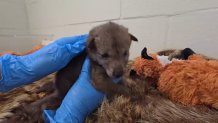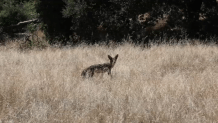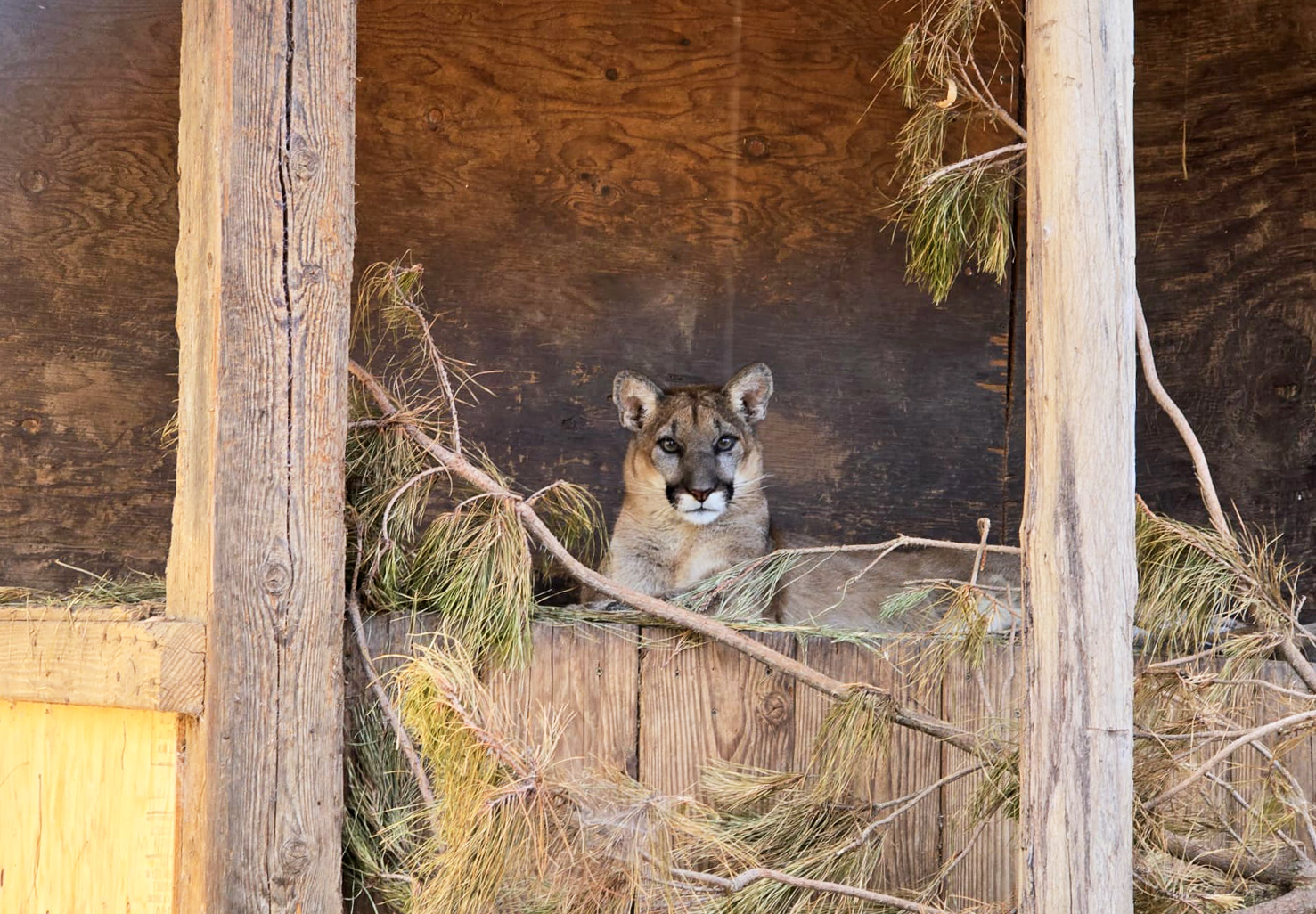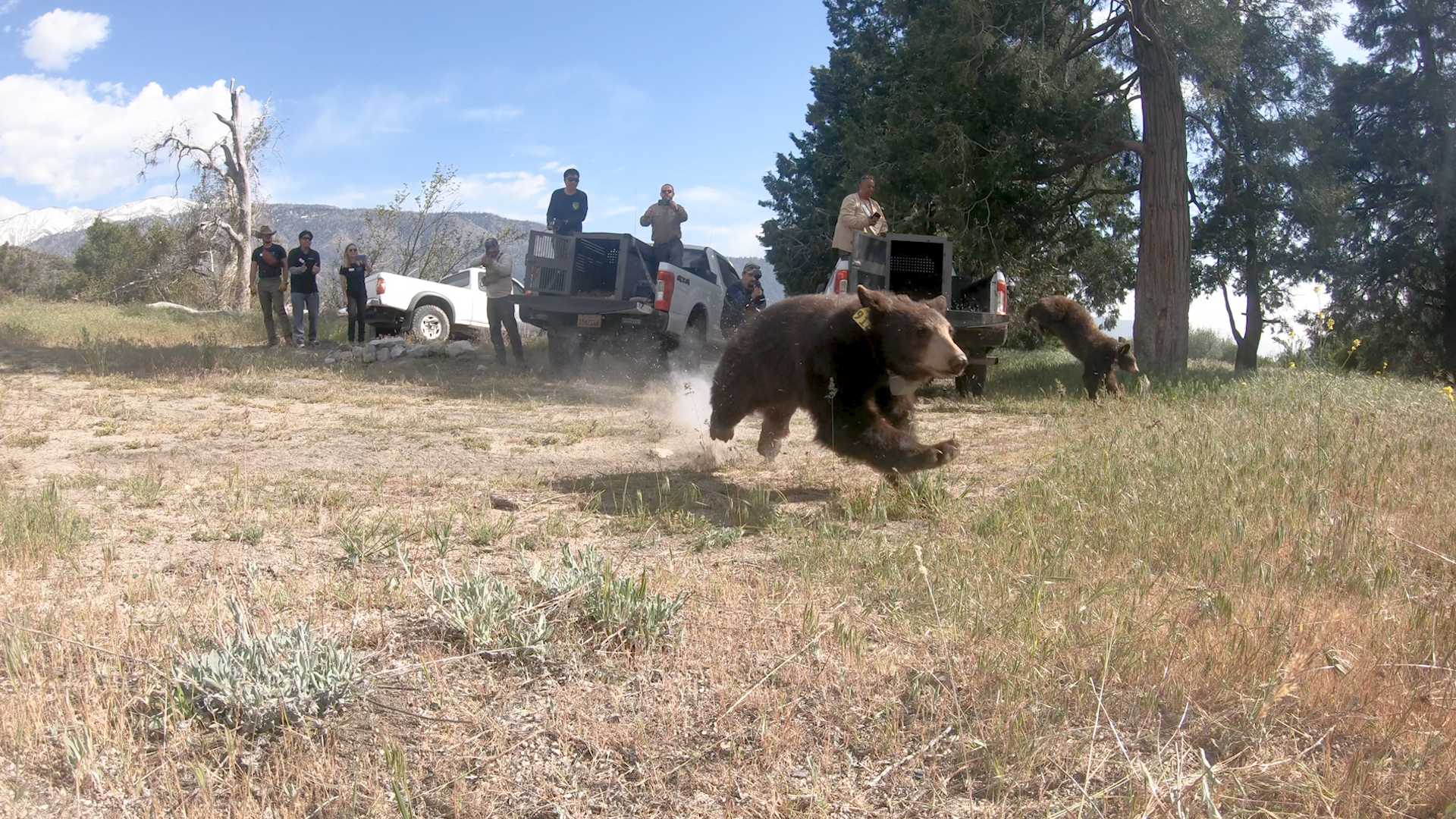Months after they were found scattered around Southern California and raised at the San Diego Humane Society's Ramona Wildlife Center, nine orphaned coyote pups have been released back into the wild, it was announced Monday.
The coyotes are about six months old. They all came in at different times between March and May, when they were around 4-6 weeks old.
On Monday, the pups were released on the Eagle Peak Preserve near Julian, in collaboration with the San Diego River Park Foundation.
San Diego Humane Society's Project Wildlife staff bottle-fed the vulnerable pups at first, when they were too young to eat on their own. As soon as the coyotes were ready, the Project Wildlife team placed them together in an outside habitat and monitored them from a distance to avoid human imprinting.
Get top local stories in San Diego delivered to you every morning. >Sign up for NBC San Diego's News Headlines newsletter.
Related stories
According to SDHS, to make a successful release possible, it is essential for staff to keep coyotes wild.
Members of the Project Wildlife team use strategies to minimize the likelihood of coyotes imprinting on or habituating to humans, including dressing up in coyote masks and fur coats, spraying themselves and the bottle- feeding den with urine from other coyotes, and playing sound recordings of wild coyote howls and calls, according to the agency.
Three of the nine coyotes were discovered under the deck of a home in Pacific Beach on March 27 and two were purchased on Offer-Up by a community member in Riverside County at the end of April -- it was unclear how long they were in possession of the pups before coming to the Ramona Wildlife Center. Once they were weaned off formula, staff worked to re-accustom them to wild behavior by introducing them to the other pack members in the outside habitat.
Additionally, another coyote pup came from Jurupa Valley on May 4, where it was cared for by a community member for several days before being taken to Western Riverside County Animal Hospital and eventually transported to the Ramona Wildlife Center.
The last three pups came from Beverly Hills, Valley Center and El Cajon.

"Since the pups don't have their parents anymore, the wildlife rehabilitation specialists become the teachers of these young animals," according to SDHS. "Staff practice natural history considerations when helping the coyote pups learn such as: hiding or burying food to find, spreading scents from the ambassador coyotes so they learn how to identify resident adult coyotes in various territories, providing scents from potential prey animals that they might find in the wild, and giving lots of shelter and grassy hiding spots to rest and stay cool in the summer."
Project Wildlife staff use trail cameras to remotely monitor behavior and interactions among the coyote pups, to not only keep human exposure to a minimum, but to also help them determine when it's best to return these pups to the wild.
San Diego Humane Society's Project Wildlife program is the primary resource for wild animal rehabilitation and conservation education in San Diego County. At the Ramona Campus, which the organization has been operating since 2020, SDHS specializes in caring for native apex predators and birds of prey, including hawks, owls, eagles, coyotes, bears, bobcats and, under special case- by-case authorization, mountain lions.





